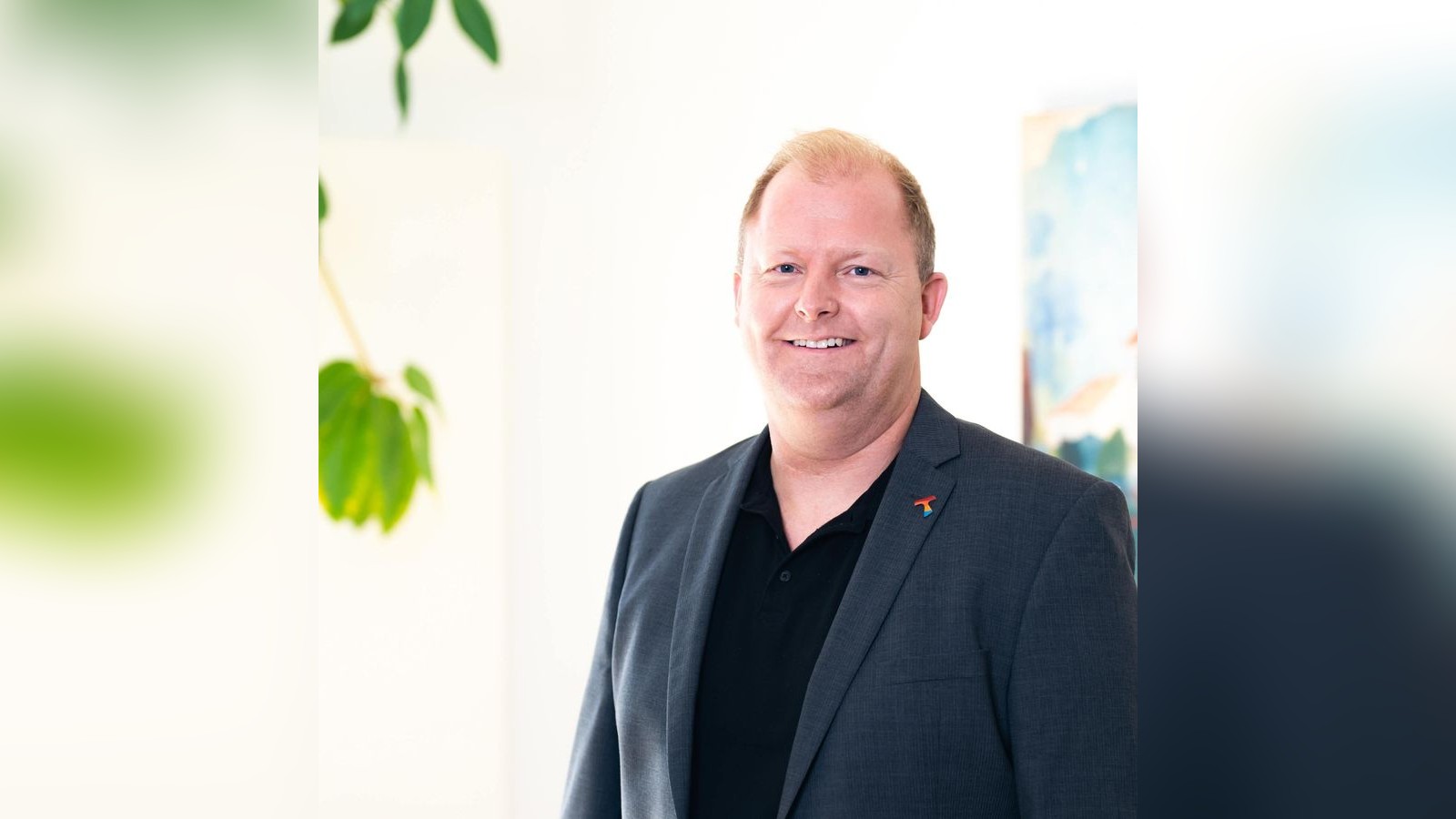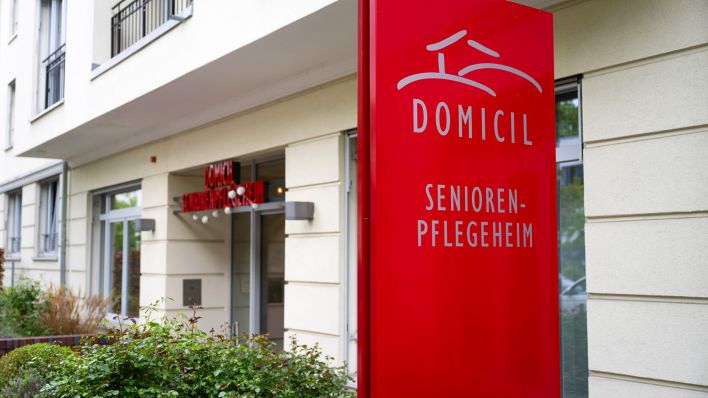Olpe. Tobias Quast is nursing director at the GFO Clinics South Westphalia. In the interview he talks about the challenges in care.
“Our nurses. Our future. The economic power of care” – This is this year’s motto for Care Day, which takes place every year on May 12th, in German: “Our nurses. Our future. The economic strength of nursing.” But what is the strength of nursing? And what does their future look like? That answers Tobias QuastNursing Director of the GFO Clinics South Westphalia, in an interview that the GFO Clinics South Westphalia provided to our editorial team as part of a press release.
The WESTFALENPOST in the Olpe district is also on WhatsApp. Subscribe here now.
Follow us on Facebook.
Order our newsletter from the Olpe district here.
All news on your cell phone? Test the new WP app now.
The WP in the Olpe district is now also on Instagram.
Mr. Quast, Federal Health Minister Karl Lauterbach recently said, “In Germany, care can do much more than it is allowed to do.” What exactly is meant by that?
In Germany, many activities in the medical profession are regulated by law: who is allowed to carry out diagnostics on people, who is allowed to prescribe remedies, and who is allowed to carry out procedures on patients. Up until now, care has played only a minor or no role in these laws and regulations and is constantly encountering interface problems. Example: If nursing determines during the nursing assessment that a patient needs a commode at home, this must be prescribed by a doctor. The Minister of Health aims to ensure that nursing can make decisions within the scope of its competences, for example to prescribe medication or remedies across sector boundaries, or to make decisions with nursing interventions in the treatment process. This is also what nursing associations and the nursing chamber are demanding. In the end, you could say: This means that nursing has more work to do. But you can also say: Nursing can work more independently. Nursing no longer has to constantly interrupt the work process, can thereby reduce many hurdles and in the end has less work and a better patient outcome.
Also interesting

The WESTFALENPOST in the Olpe district is also on WhatsApp. Subscribe here now.
Follow us on Facebook.
Order our newsletter from the Olpe district here.
All news on your cell phone? Test the new WP app now.
The WP in the Olpe district is now also on Instagram.
The Nursing Chamber recently called for more planning security for nursing staff – keyword “stepping in”. How can it be implemented locally to reduce the need for intervention?
First step: have enough staff to adequately staff the services. This works mostly well for us in our target planning. But employees can of course also become ill spontaneously. This is exactly why you need regulations behind it. There are many companies that have employees available through so-called “springer pools” or “flexipools” who can be deployed across stations. But if too many employees are absent on one day at the same time, even a pool cannot cover this. It is important to know that these pools are filled from the normal staffing plan. This means that no additional positions will be created. Second step: For us, requests for service planning, the exchange of services and the payment of additional services are part of our philosophy. We managed to achieve relatively stable duty rosters in the target planning through a stable staffing plan. In addition, company health management is playing an increasingly important role. We try to reduce illness using our options as an employer. Third step: A very “well-rounded” working atmosphere. Employees should be seen with their concerns, wishes and ideas. Leadership must happen at eye level. Everyone should be there for each other. Beyond departmental and professional boundaries. The fact is that the number of services that have stepped in is declining sharply. We are currently at 3 percent this year. There is a tendency for the measures to be fruitful.
“Our nurses. “Our future” is part of the motto of Care Day. How is care in the GFO clinics in South Westphalia prepared for the future?
Also interesting

Very good. When talking about the future of care, there are three pillars to consider. This is also my duty as nursing director and ours as a company. One pillar is the number of nursing staff. There is currently a labor market that is not necessarily developing “for skilled workers”. In addition, there is an increasing need for care in society. And then there is the issue of quality. Everything shouldn’t cost anything anymore. We as employers have to navigate this area of tension. “Our nurses. Our future.” also means investing in care. And when I look at the GFO and us as part of the network, we have a very good investment in training. Training is the most important component in recruiting employees for us. We are investing a lot there and have increasing training numbers. Our clinic has high quality trainees and a high proportion of trainees who successfully complete their training with us. Our trainees are guaranteed a job after successful exams. With the four nursing specialist courses per year and the nursing assistant courses in the advanced training academy, we ensure a constant level against the natural fluctuation caused by retirement, illness and so on. At the same time, it is important to look closely at issues such as the compatibility of family and work in order to give young people the opportunity to quickly return to work after pregnancy or parental leave through flexible models. It is also important to enable older employees, or if the topic of “caring for relatives” suddenly plays a role, to stay in the job for as long as possible. That’s the issue of quantity. When it comes to quality, in addition to training, we also look at the areas of continuous further training, but also use modern nursing interventions. The nursing handover at the patient’s bedside and exemptions for practice instructions are just a few examples. We also welcome feedback from our patients or their relatives if things aren’t going so well. In our new approach, we then discuss these together in the teams in order to learn from this. That’s the qualitative thing. But we also look at future needs. As with the Lean project that has just started, in which we take into account which patient clientele we will be able to look after in the clinical setting in the future, where more and more outpatient treatment is being treated and less inpatient treatment, and what we will find again in the topic of new construction at the Olpe location, so that for In the end everything will be “round” for patients and employees: sufficient nursing staff, qualified nursing staff and the best working conditions. We try to work on these three pillars.
We are a highly qualified profession. Anyone who has completed nursing training with further specialist training has five years of dual training behind them. Maybe even supplemented with a degree.
Tobias Quast – Nursing Director
The second half of the motto for Care Day is “The economic power of care”. This suggests strength, power. However, the public image of the nursing profession is unfortunately somewhat different. For example, being underpaid or underappreciated. How does that fit together?
Not at all. This is the discrepancy that our professional group has traditionally faced. We are a highly qualified profession. Anyone who has completed nursing training with further specialist training has five years of dual training behind them. Maybe even supplemented with a degree. But nurses have always been the ones who work, who carry and have the “care” in them, and for us have never claimed to have other roles in the healthcare system. But that has changed significantly in recent years. And the ICN (International Council of Nurses) would like to point this out. This year’s motto is intended to illustrate how important nursing professions are for national economies and their continued existence, not only in Germany but internationally. In many other countries the nursing profession has a higher reputation than in Germany. That is currently changing. On the one hand, of course, the shortage of skilled workers helped. On the other hand, there is also the professional policy work, the work of the nursing chamber, the nursing associations, which continually underline the topic. Nurses now recognize their value. On the subject of “underpaid professional group with high workloads due to shift work etc.”: Yes, shift work is definitely not always nice, the workload is high, but if there is one thing that nursing is not, then it is clearly underpaid compared to other skilled workers. Of course, more is always good. There are many options in the nursing setting. And of course there are differences in salary depending on what area you work in, whether you have a lot or little shift work, a lot of responsibility or little responsibility, a lot or little professional experience: the range is wide.
But what exactly is the strength of nursing?
Flexibility, commitment, high professionalism and a certain level of perseverance. Those would be the adjectives that spontaneously come to mind. It is always difficult to characterize such a large professional group in a few words. A nurse in a senior care facility has a completely different focus and a completely different intention than a nurse in the intensive care unit, in an outpatient service or in psychiatry. Depending on the area, different groups of people naturally gather. That’s also the beauty of the nursing profession.
There has been a nursing development department at the GFO Clinics in South Westphalia for a few months now. In which direction will or must nursing develop in the future?
More about hospitals in the Olpe district
Care must not stand still. Nursing must take up the current social opportunities that are given to it, develop it and get out of its eternal “I’m down” mentality. There are professional associations and nursing chambers in which you can get involved. This is the macro level. If we see care at the micro level, i.e. in the GFO clinics in South Westphalia, it must of course also develop further here. Because society is evolving and patients are changing. New generations are becoming patients, with new demands on nursing staff. There are other clinical pictures, other working environments. New generations of nurses bring very different things to the workplace than previous generations. New Work, work-life balance, etc. must also be integrated into the workplace. And with the new nursing development department, we want to start right there. With Johanna Hannay, we have a health psychologist and medical educator there who, on the one hand, promotes nursing development, but on the other hand also promotes topics such as company health promotion or the lean project and, together with the employees on the wards, critically examines work processes so that we can make further progress stay on the ball.





